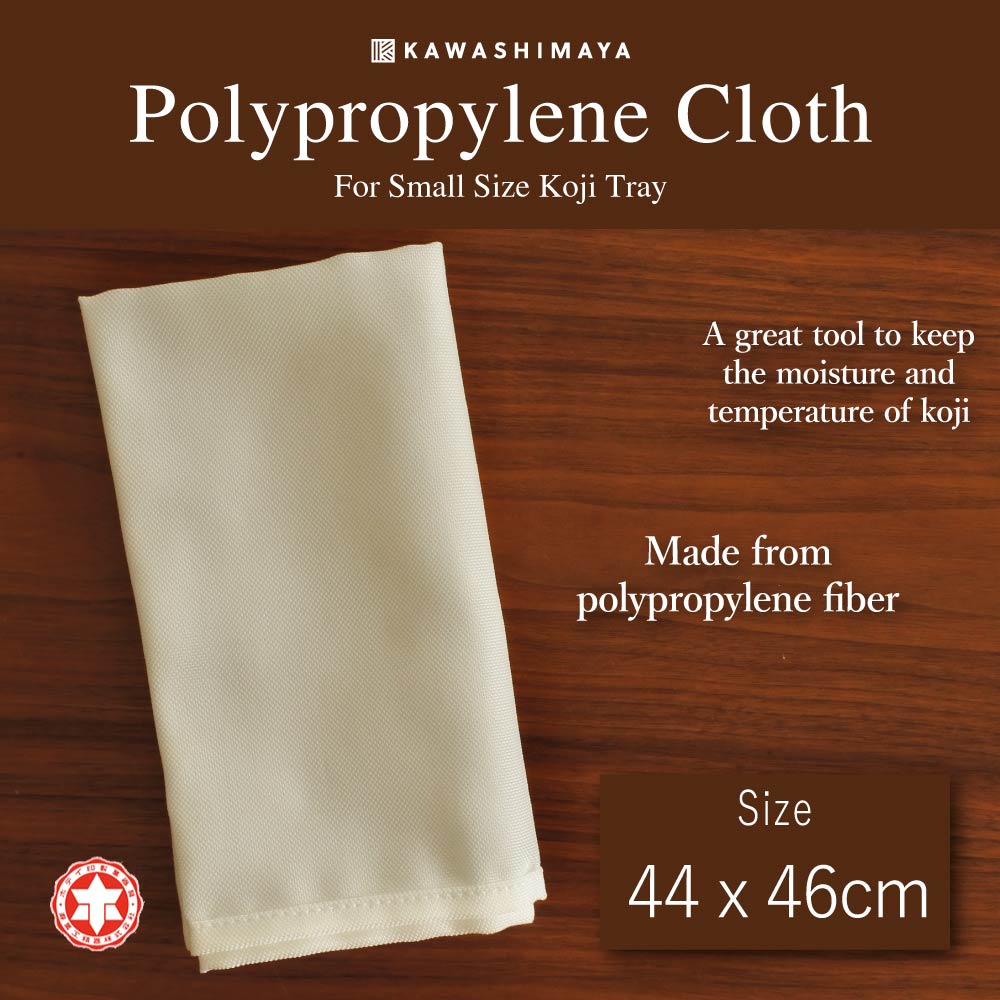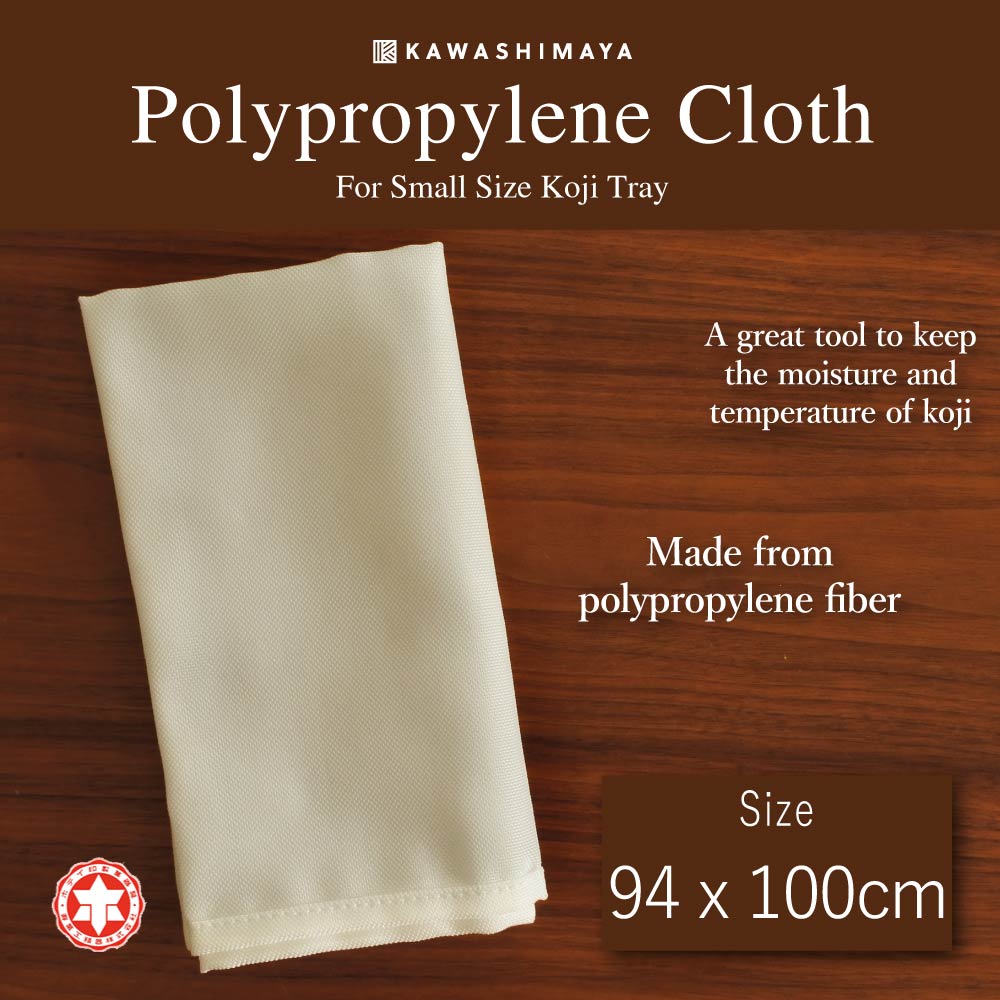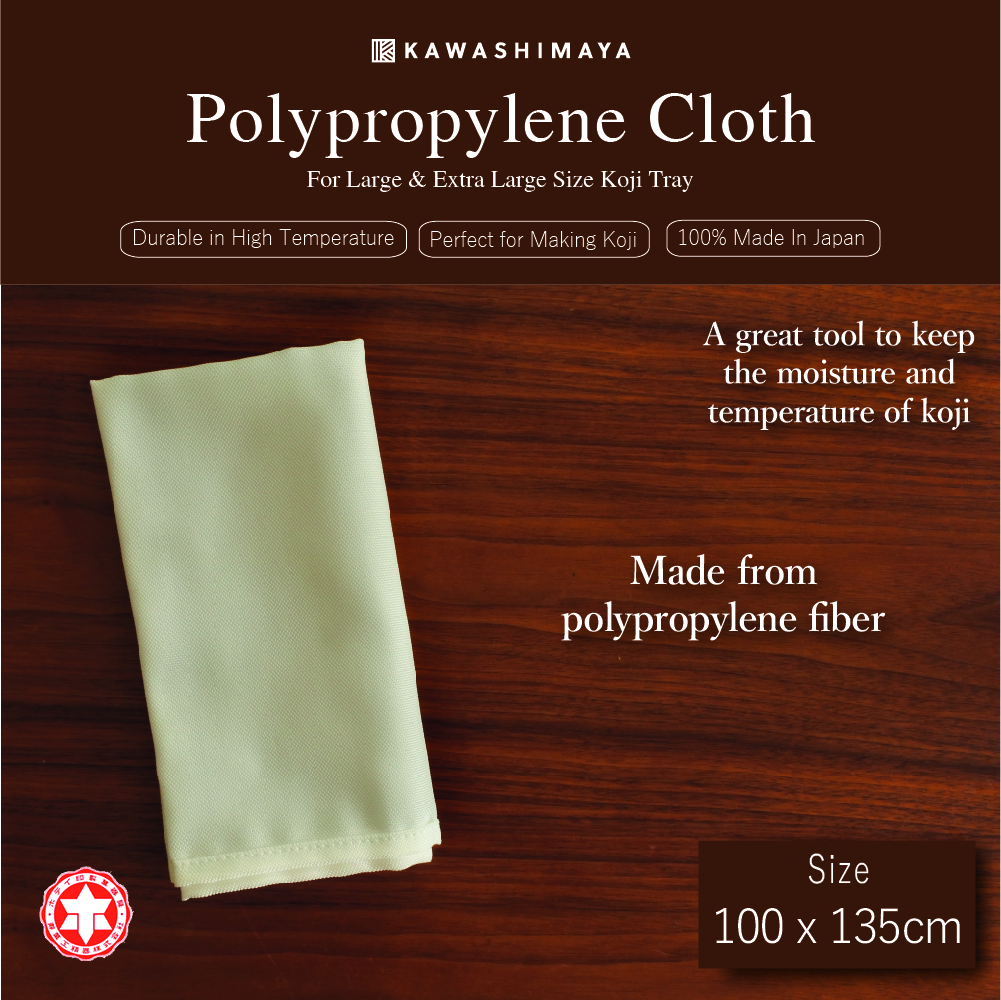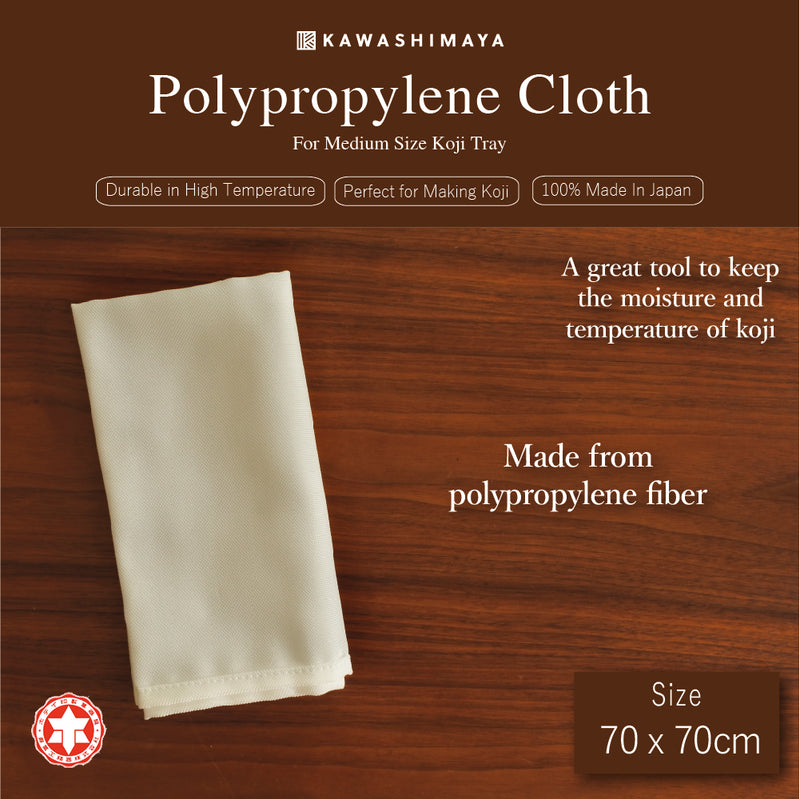
Polypropylene Cloth (Pairen) for Koji Making and Cooking 70 x 70cm - 100% Made In Japan
In stock
What is Polypropylene Cloth? (Pairen)
This is a polypropylene steaming cloth manufactured by Kotobukikako-Seiki. This cloth is a koji-making tool that professional koji makers love.
Make good-quality homemade koji using the cloth favored by koji maker professionals. Mat cloth from Polypropylene fabric prevents the spillage of raw ingredients. It also optimizes the humidity & temperature to keep the koji warm at the right temperature and smoothly finish the fermentation.
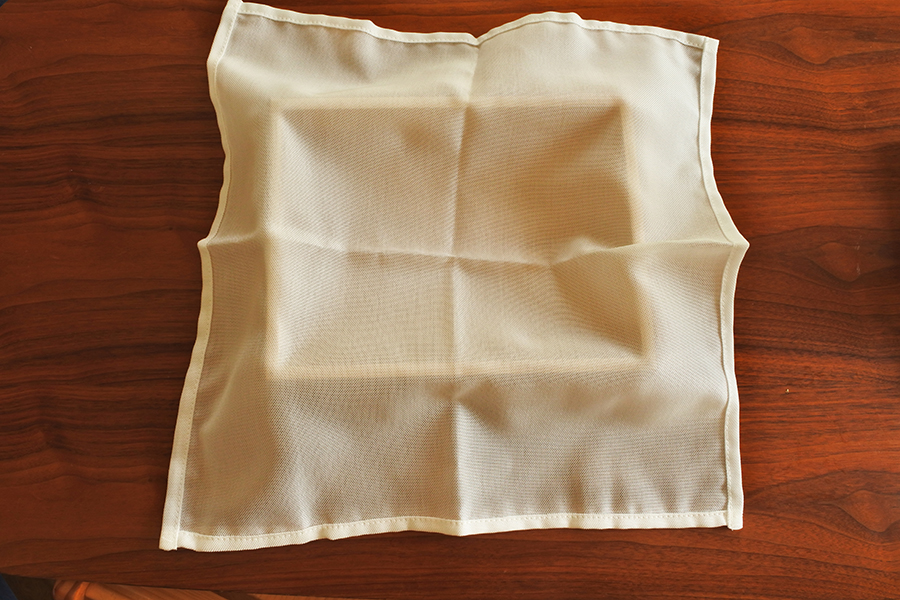
Because the cloth is durable in high temperatures, it’s perfect for wrapping koji during the warming/breeding step. The fabric holes on polypropylene cloth are small, preventing the spillage of grains and koji starter and letting extra moisture escape. Add one layer of cotton cloth to wrap on the outside to absorb the excess moisture. This way, you can create the perfect humidity and temperature for koji to propagate.
Compatible with Koji Tray Size M
This Polypropylene Cloth is made in a size that matches the Koji Tray size M that you can use with the Koji Fermenter. You can wrap the koji with this single Polypropylene Cloth 70 x 70cm. Choose the right size of Koji Tray and Polypropylene Cloth before making your own koji to produce the perfect one!
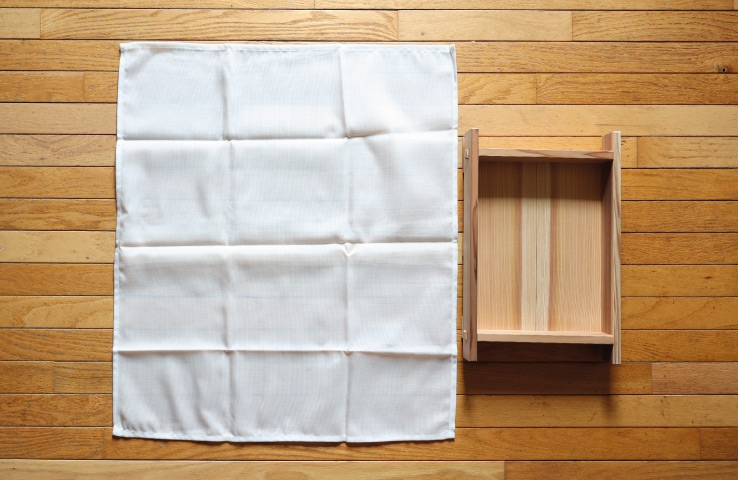
NOW AVAILABLE ON AMAZON USA!
We are pleased to inform you that Polypropylene Cloth is now available on Amazon USA. Click the link to see the product!
The Rice Grains That Won’t Stick To The Cloth
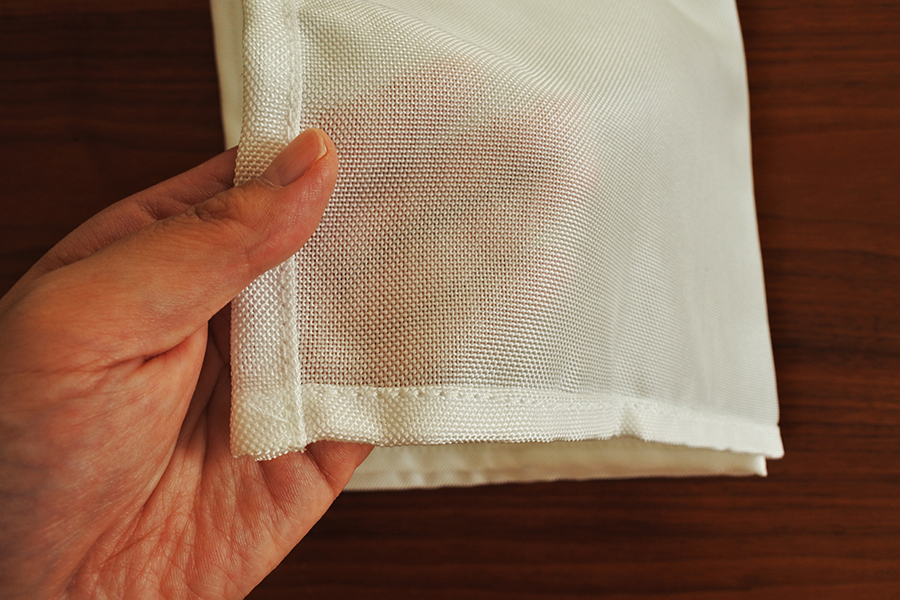
The best feature of this cloth is that it is tough for rice grains to stick to. It will make koji-making more effective since you don’t have to waste time cleaning sticky rice from the cloth.
Ideal For Adjusting The Humidity of Steamed Rice
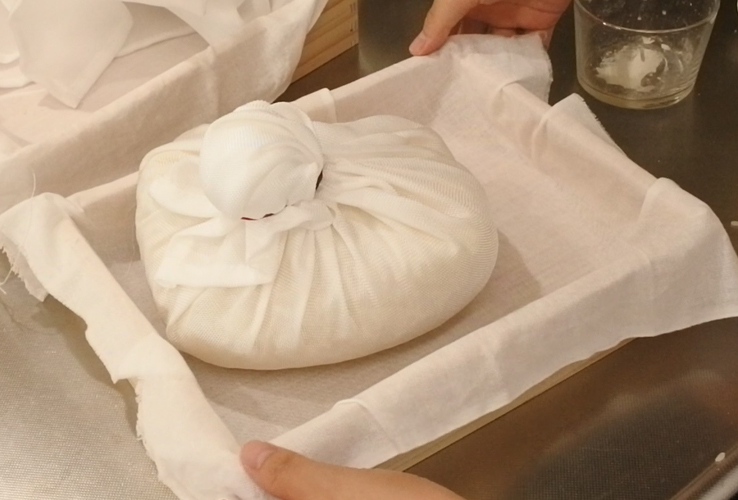
When keeping the warm temperature during koji-making, wrap the steamed rice grains that have been sprinkled with koji starter using a polypropylene cloth, then add another layer of cotton cloth on the outside to absorb moisture. This technique will adjust the humidity and temperature of koji.
We recommend this cloth for making koji at home or professionally.
What Exactly is Polypropylene?
Polypropylene is a durable and environmentally friendly fiber. It can be recycled and consumes less energy when recycled. As polypropylene became more and more popular in many consumer and industrial applications, it was gradually discovered that this type of plastic also showed potential as a textile.
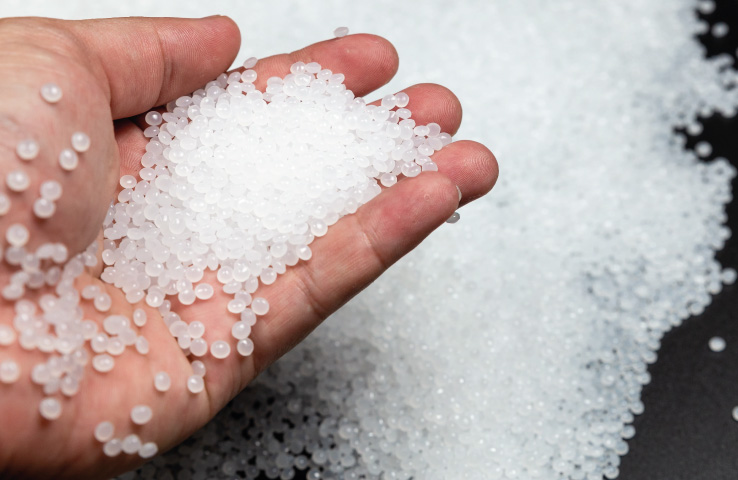
Polypropylene (PP) has the characteristics of being resistant to heat and chemicals. This type of plastic is safe to use as a raw material for making food and beverage containers that are in direct contact with food.
Why You Should Use Polypropylene Cloth?
Polypropylene is classified as a “thermoplastic” (as opposed to “thermoset”) material which has to do with the way the plastic responds to heat. Thermoplastic materials become liquid at their melting point (roughly 130 degrees Celsius in the case of polypropylene). Here are the others remarkable properties of polypropylene:
● Non-Stick
● Reusable
● Durable for long-term use
● Lightweight
● Quick-drying
● Hard to fade & stain
● Heat Resistant (Temperature safe below 130℃)
Polypropylene Cloth Size 70x70cm Details
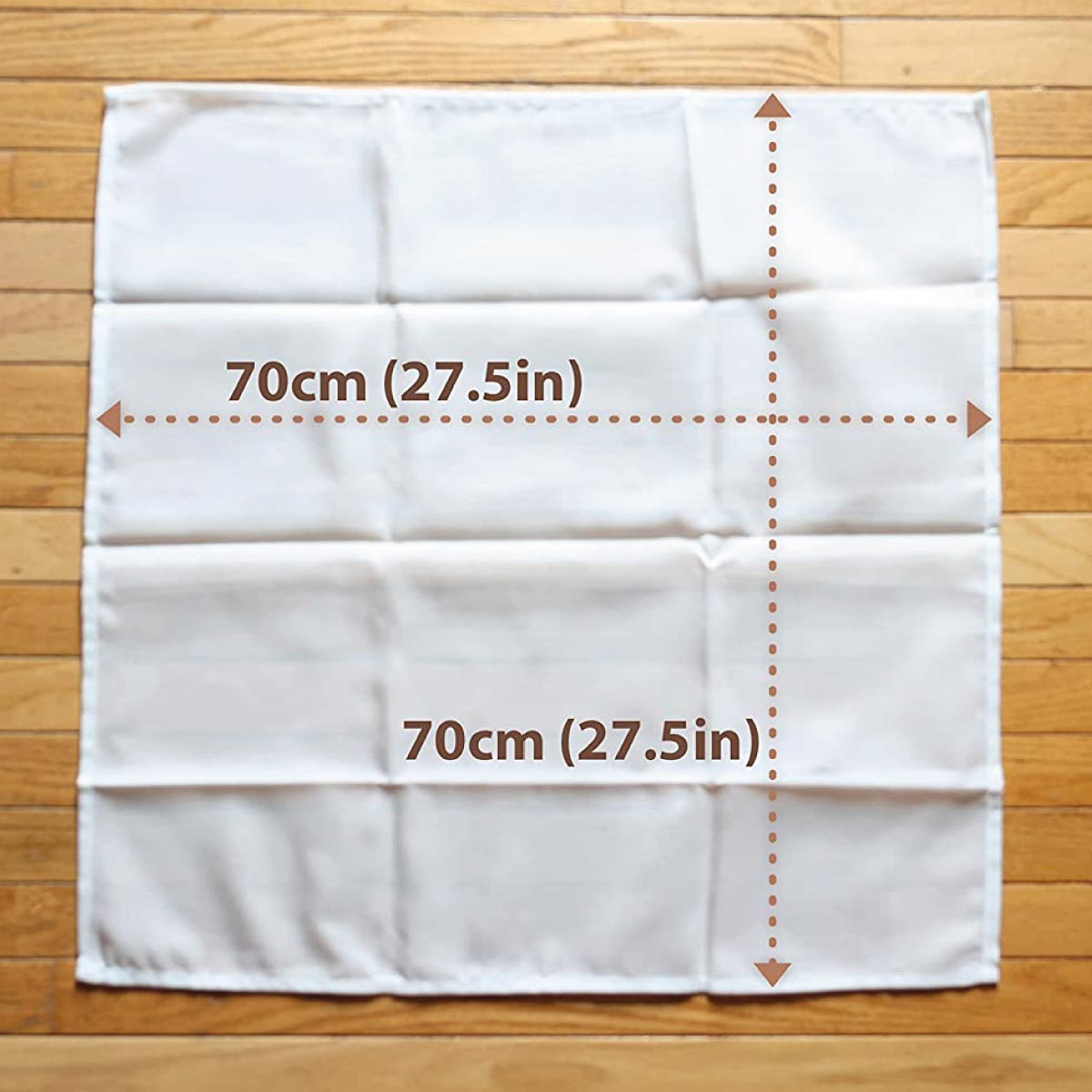
Multi-Purpose Cloth: Also Great for Steaming Other Food!
Dumplings & Steamed Buns
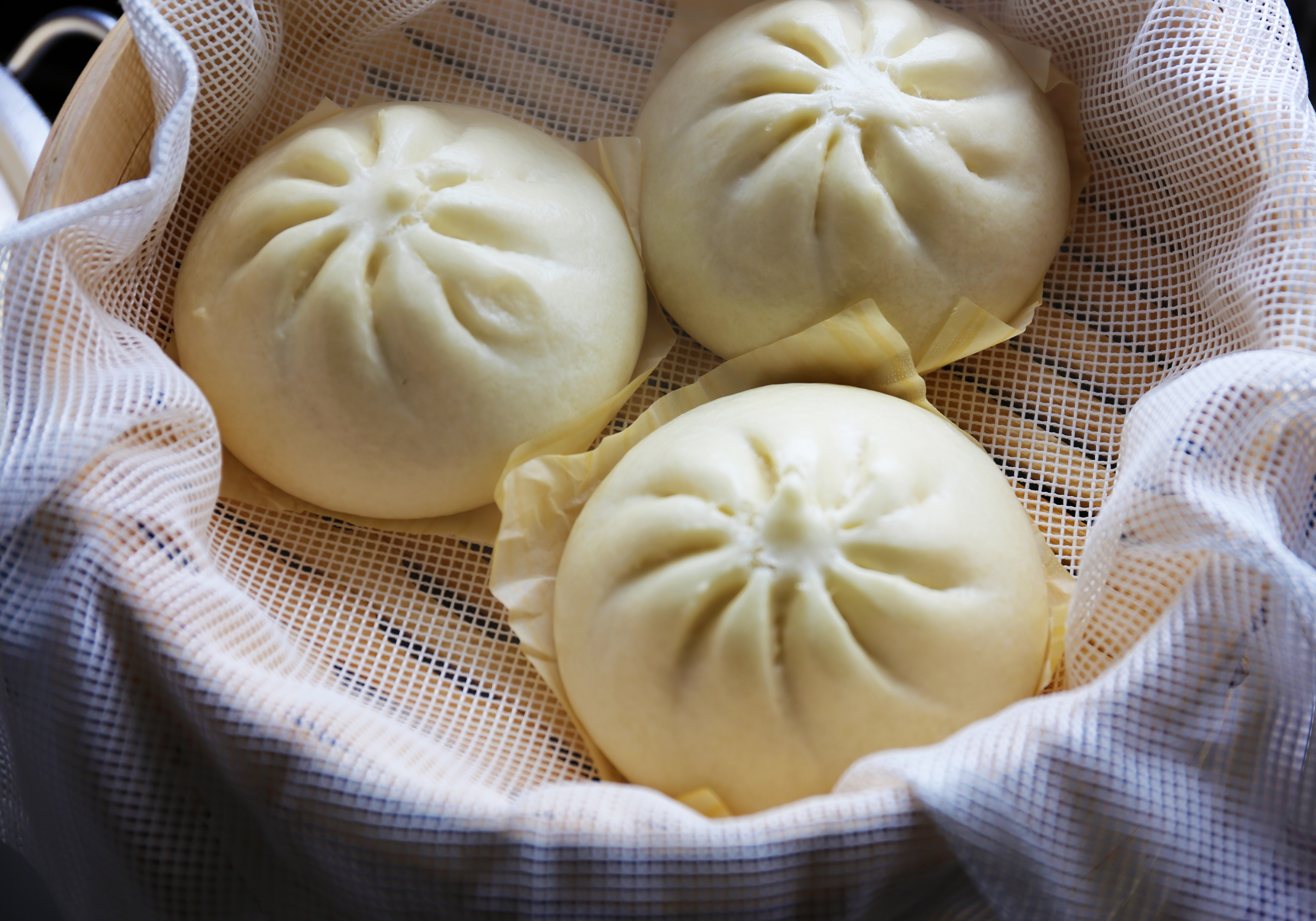
Not only for making koji, use this non-stick cloth for steaming your favorite dishes like dumplings, dim sum, steamed buns, and shumai. Suitable cloth for bamboo steamer and stainless steel steamer.
Sticky Rice Dishes
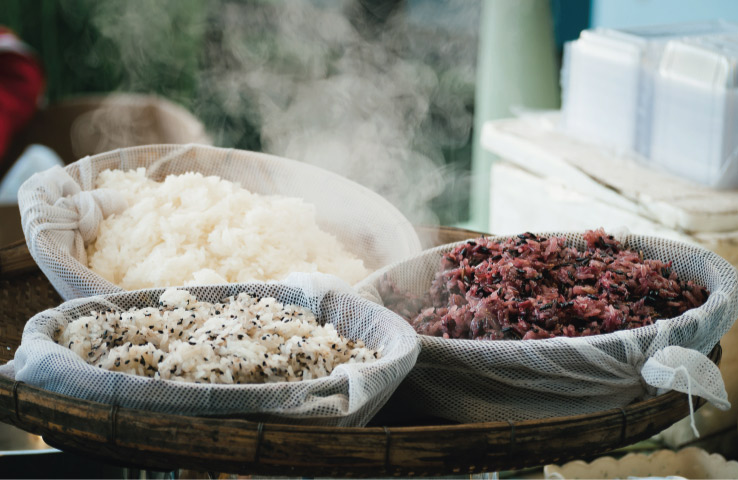
The fine mesh is suitable for steaming rice dishes, so nothing will come out or stick to the mat cloth. Also suitable to transfer rice from rice cooker to rice warmer/hangiri when making sushi rice.
Steamed Vegetables
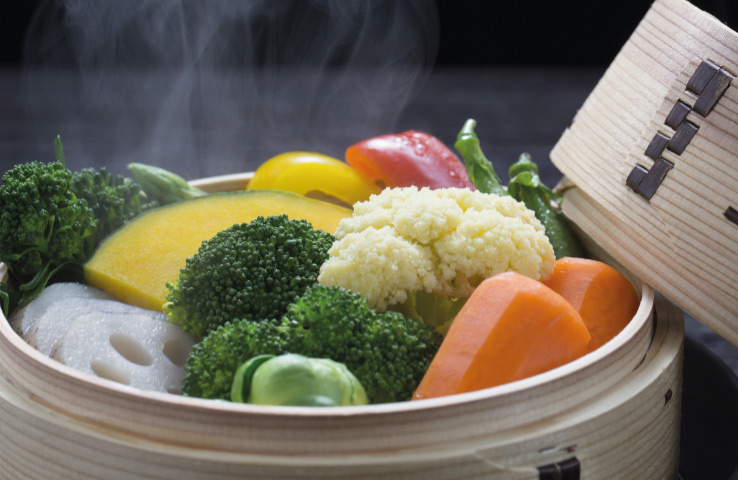
Make healthy and easy steamed vegetables. Use it as a steamer mat to make other steamed dishes like chicken, meat, seafood, etc.
How to Make Rice Koji
In this video, we will explain the steps to making Rice Koji (fermentation starter, Aspergillus oryzae, bred on rice). Rice Koji manufacturer generously hands down this guide. Please feel free to use this as a reference when making Rice Koji.
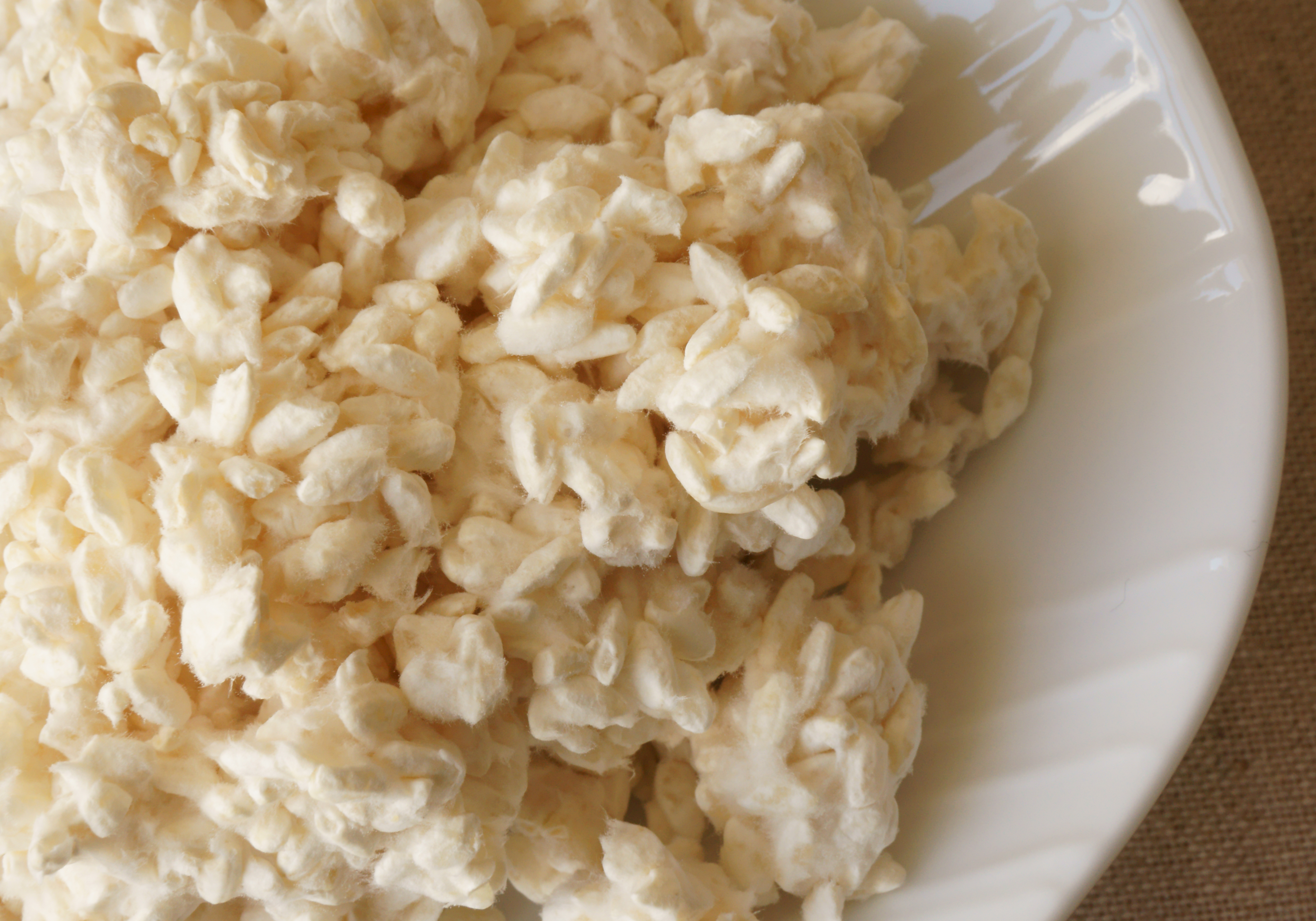
The Amount of Koji Rice And The Amount of Rice to Use
The Amount of Rice
The Amount of Finished Koji Rice (Approximation)
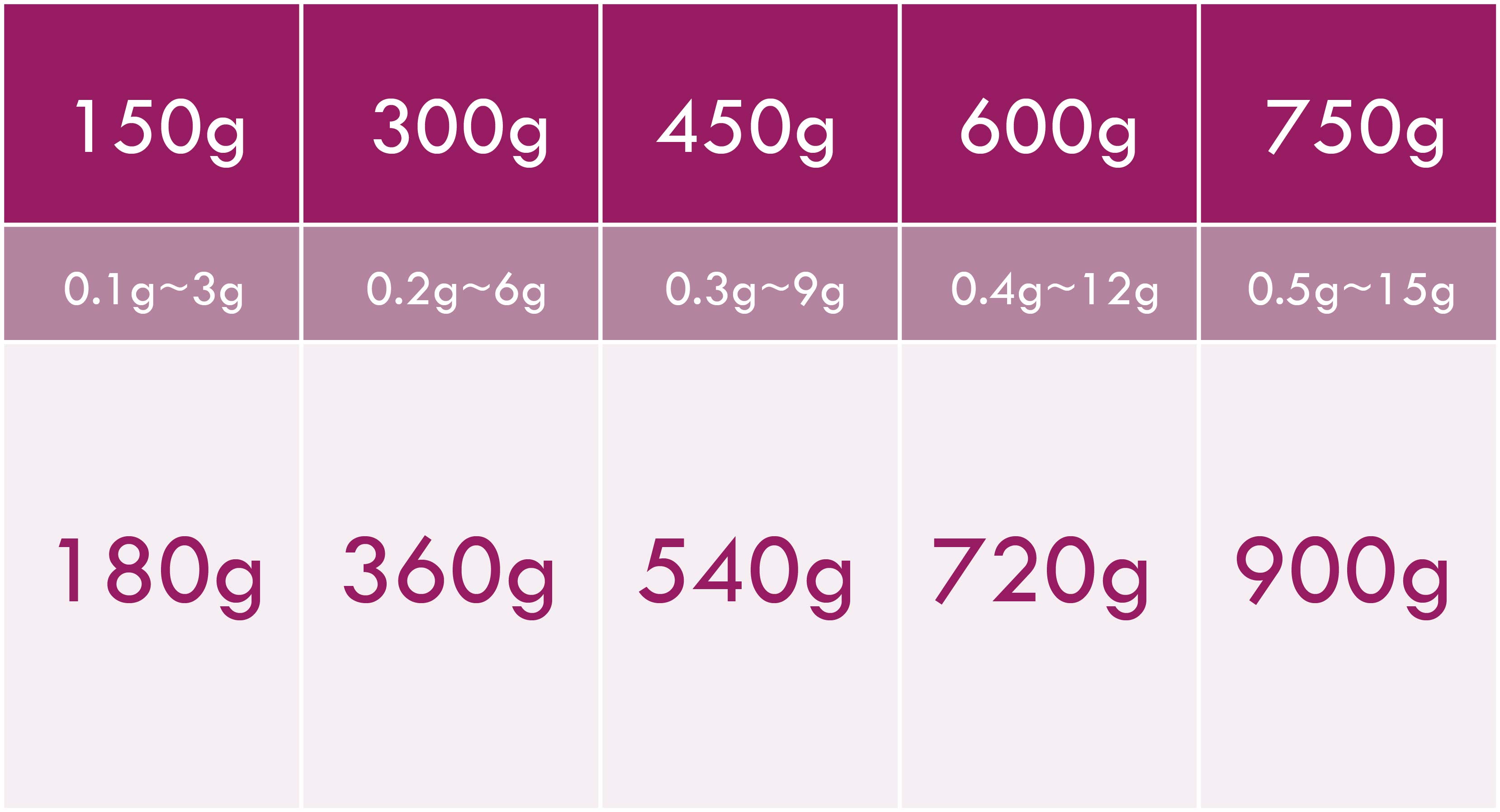
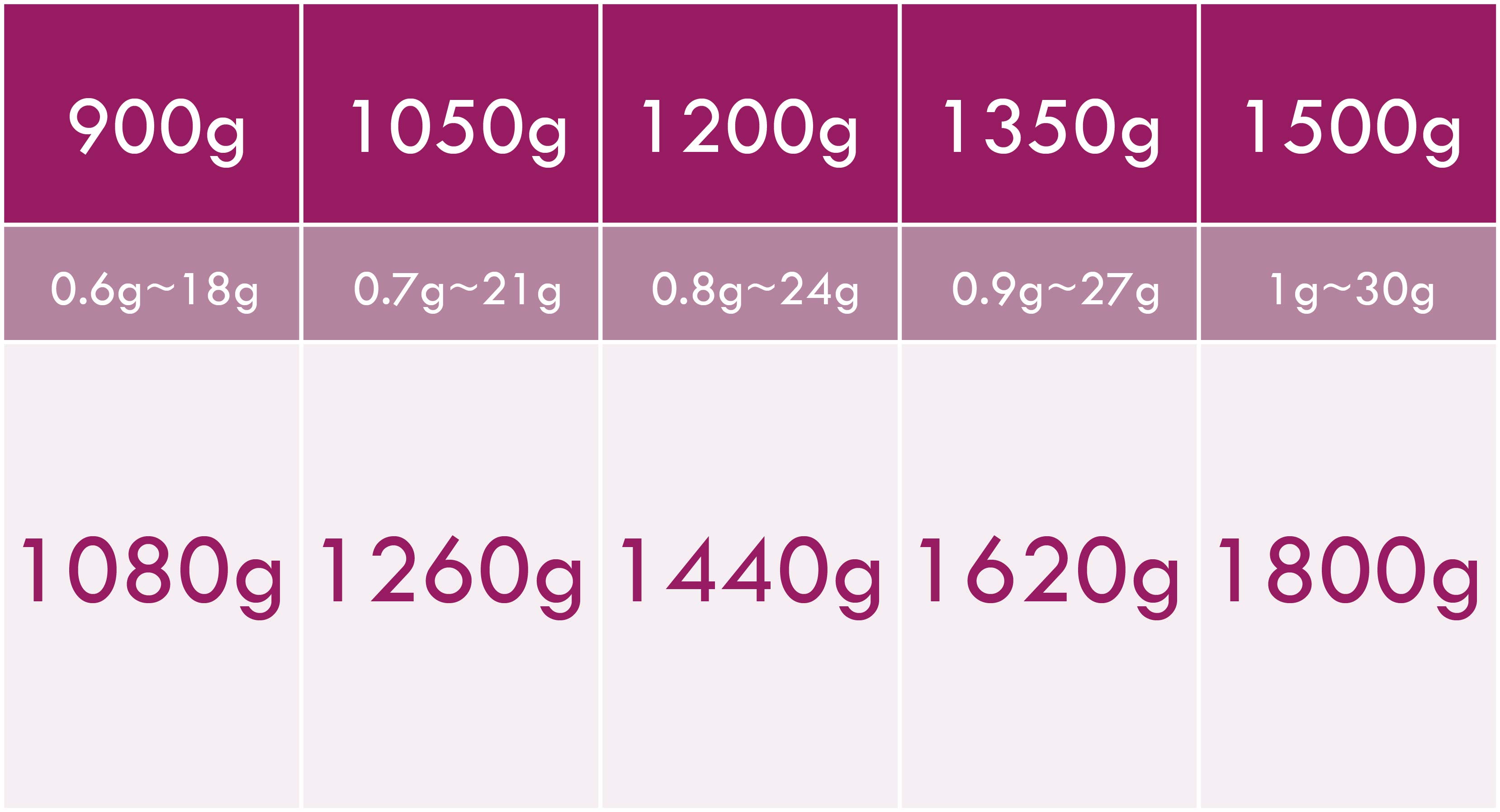
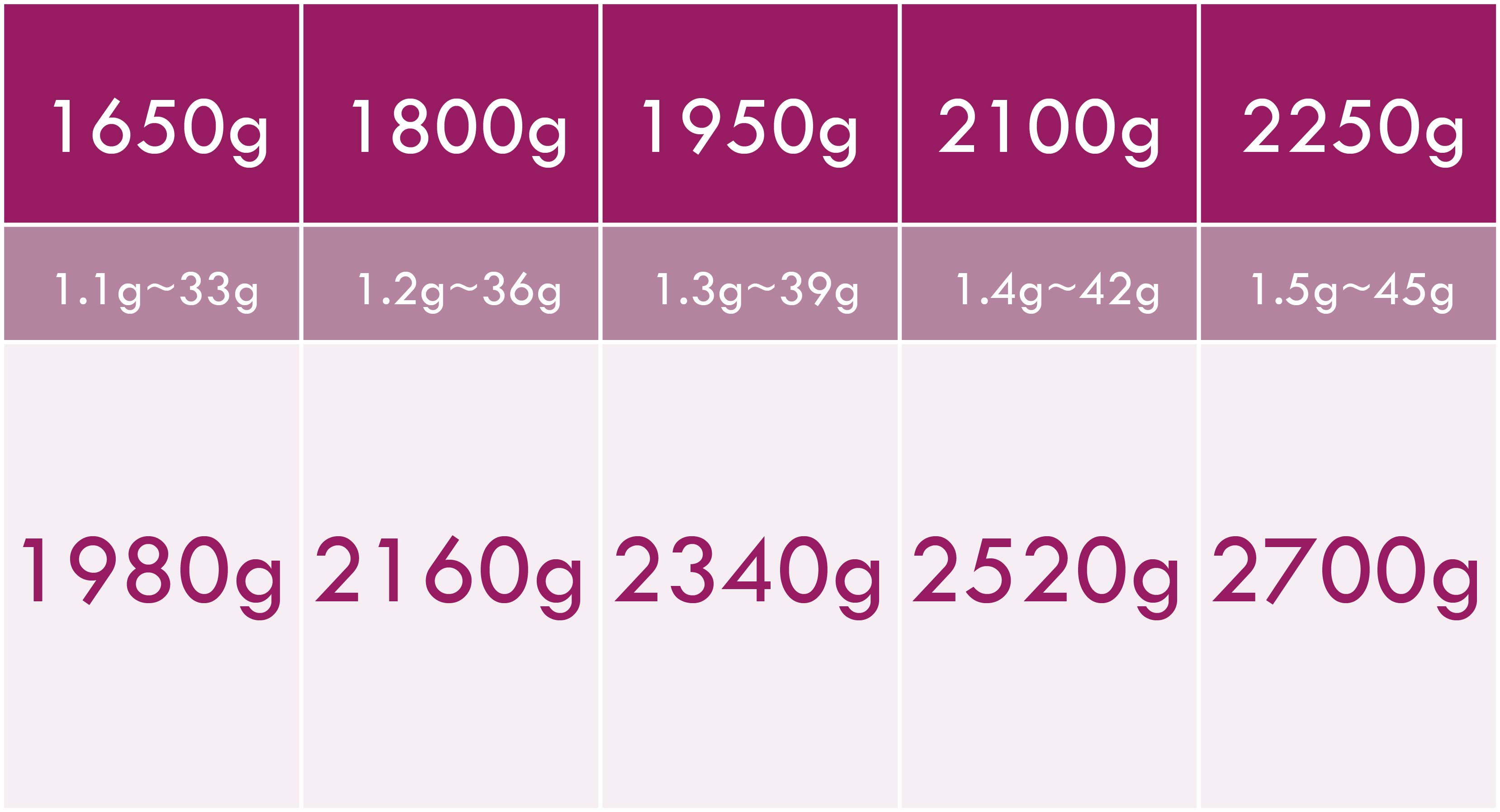
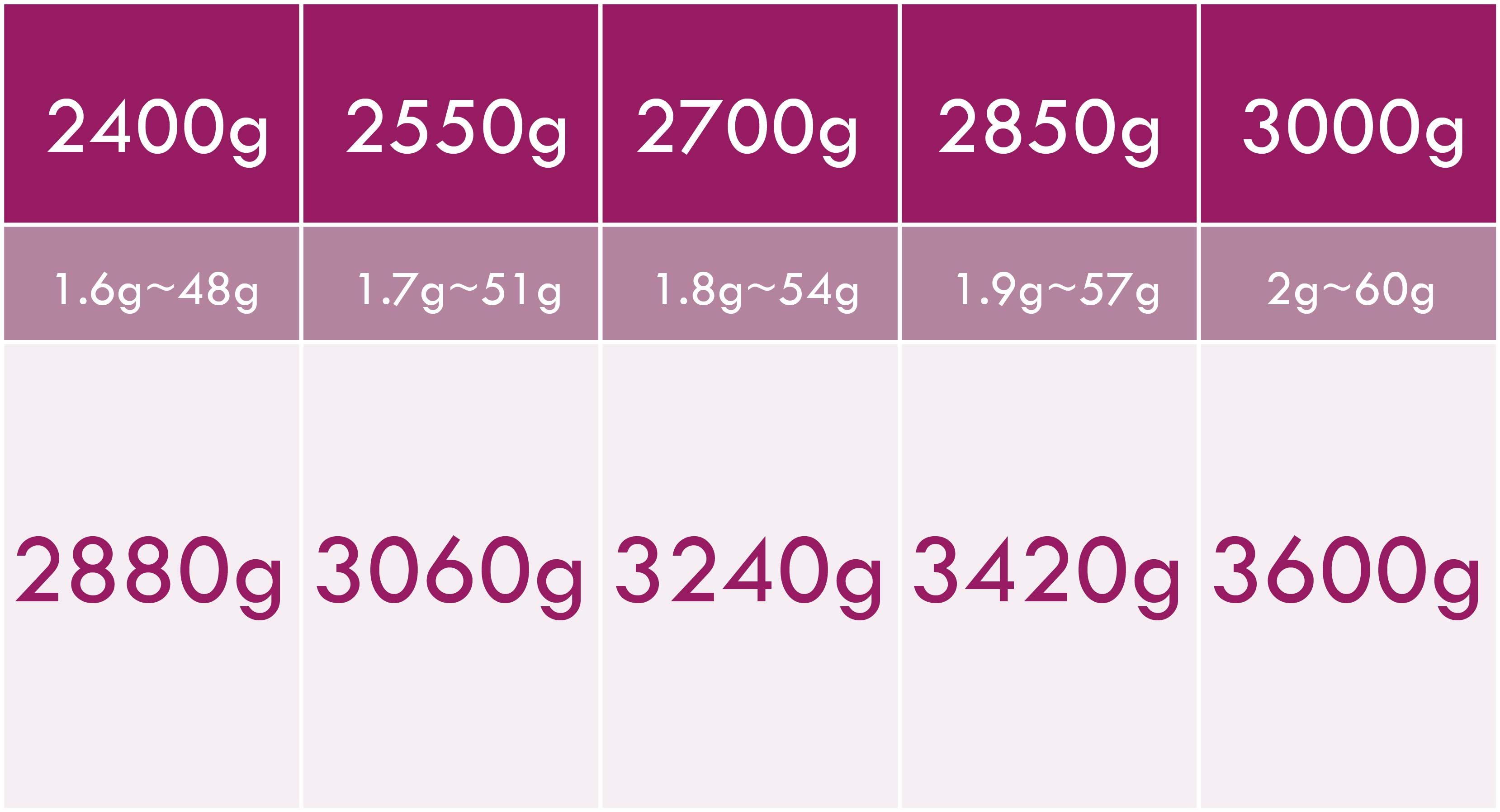
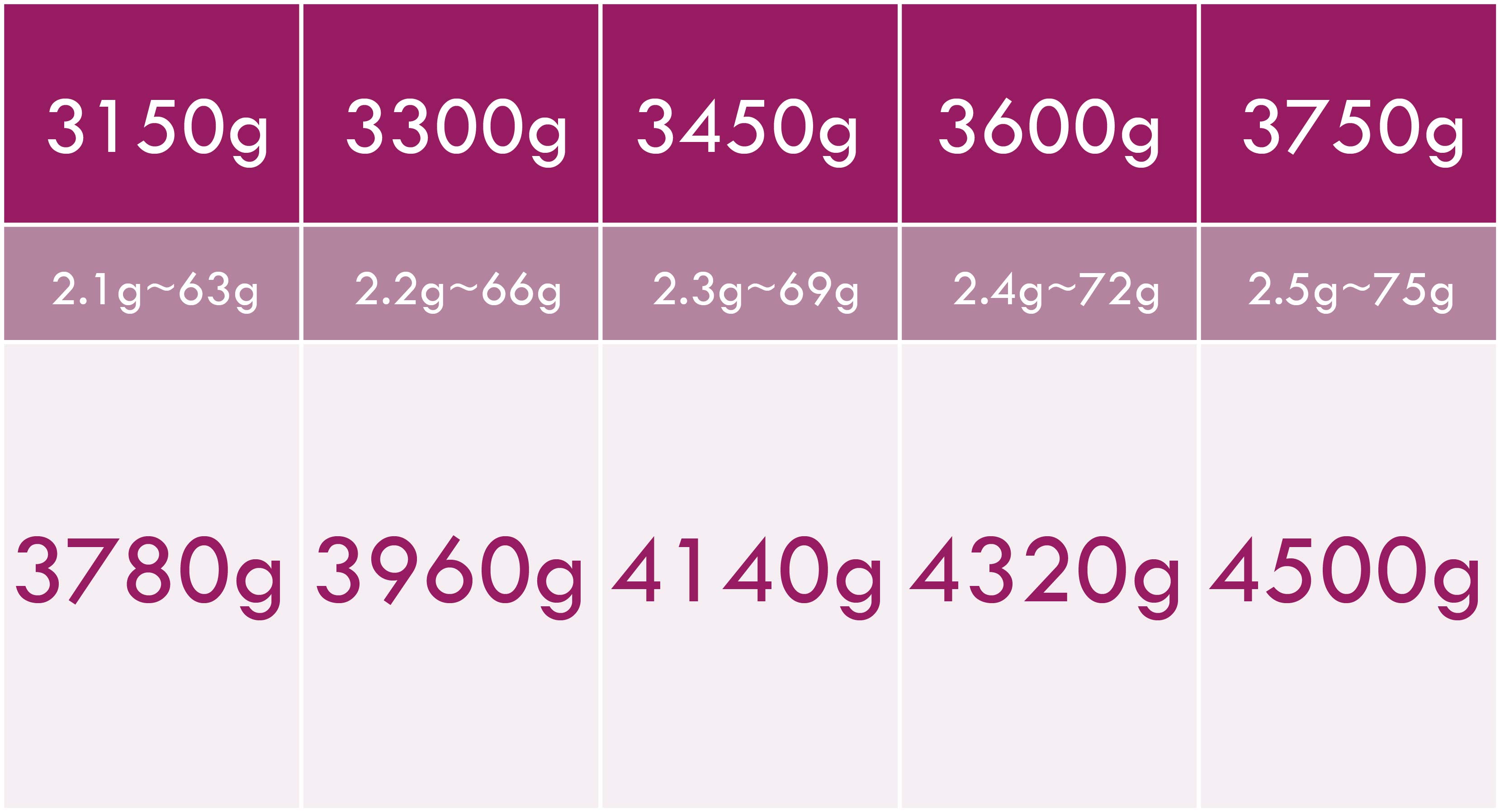
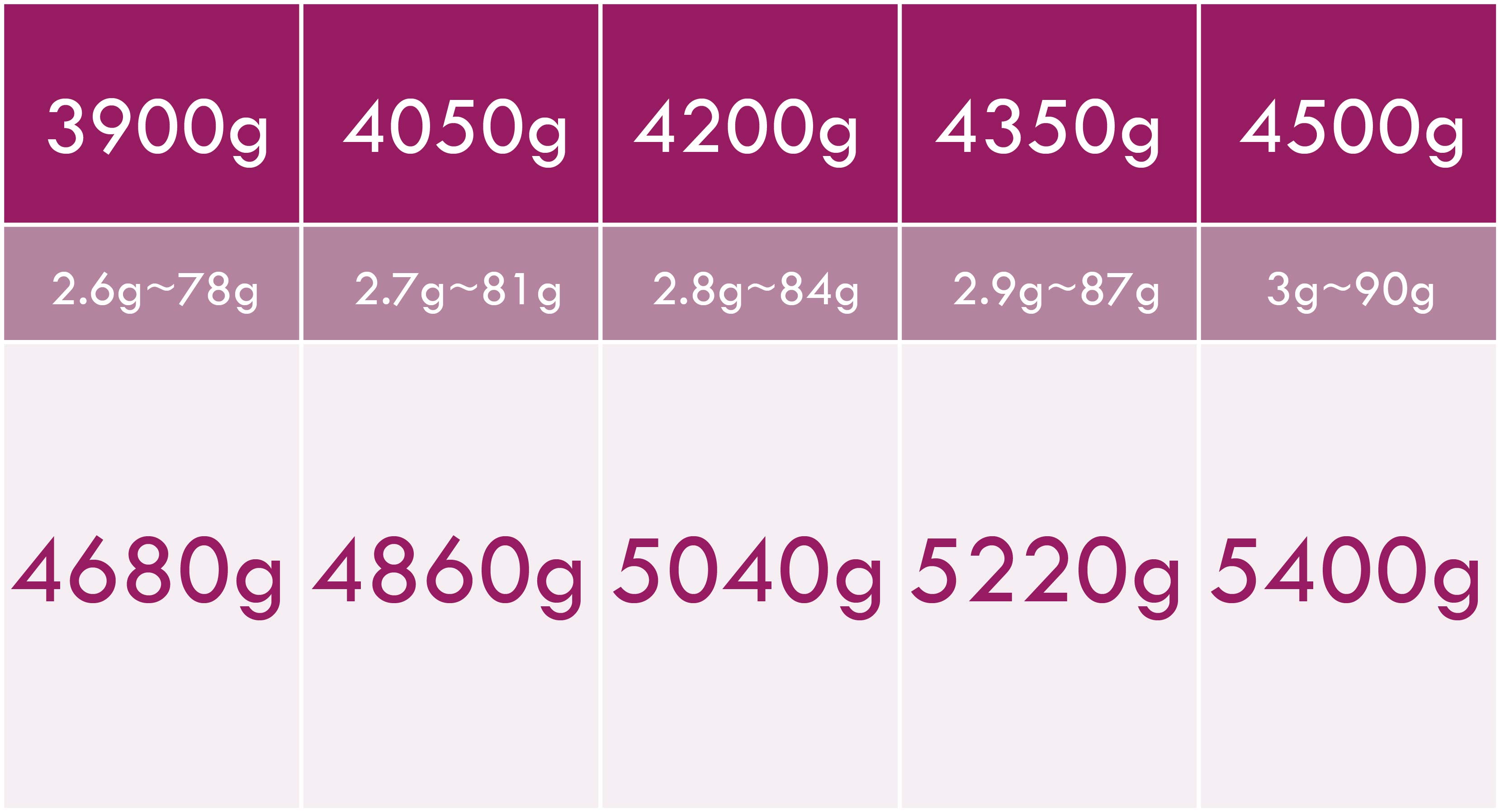
How to Make Barley Koji
In this video, we will explain the steps to making Barley Koji. Barley koji is used as the raw material for making Japanese fermentation food such as barley miso (麦味噌), kinzanji miso, and shoyu. At the sake brewery, barley koji also used to make barley shochu (麦焼酎). This recipe is an instruction from a Japanese koji manufacturer summarized by Kawashima the Japanstore. Please use this as a reference to how to make barley koji.
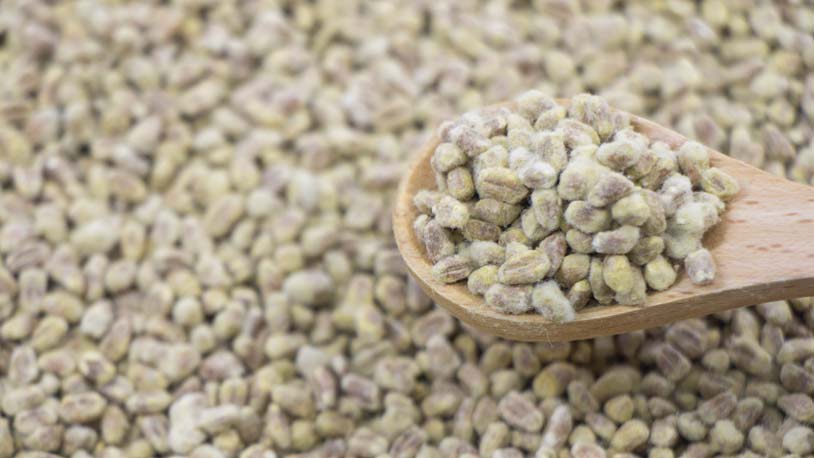
In this article, we will explain how to make barley koji (using koji starter, in this case, Aspergillus oryzae, inoculated on wheat/barley). We hope that you can make nice barley koji!
Other Tools to Use When Making Koji
Choosing the right tools will help you produce successful koji, an ingredient responsible for making Japanese fermented foods like Miso, Amazake, Sake, Shoyu, Mirin, etc. To help you produce successful koji, we provide Koji Tray Medium Size that you can use along with this Polypropylene Cloth. And we also provide a Cotton Cloth as an alternative that can be used to make koji instead of Polypropylene Cloth. Check our recommendation products below:
Koji Tray (Morobuta/Kojibuta) Size M - Locally Made, 100% Natural Japanese Cedar Wood
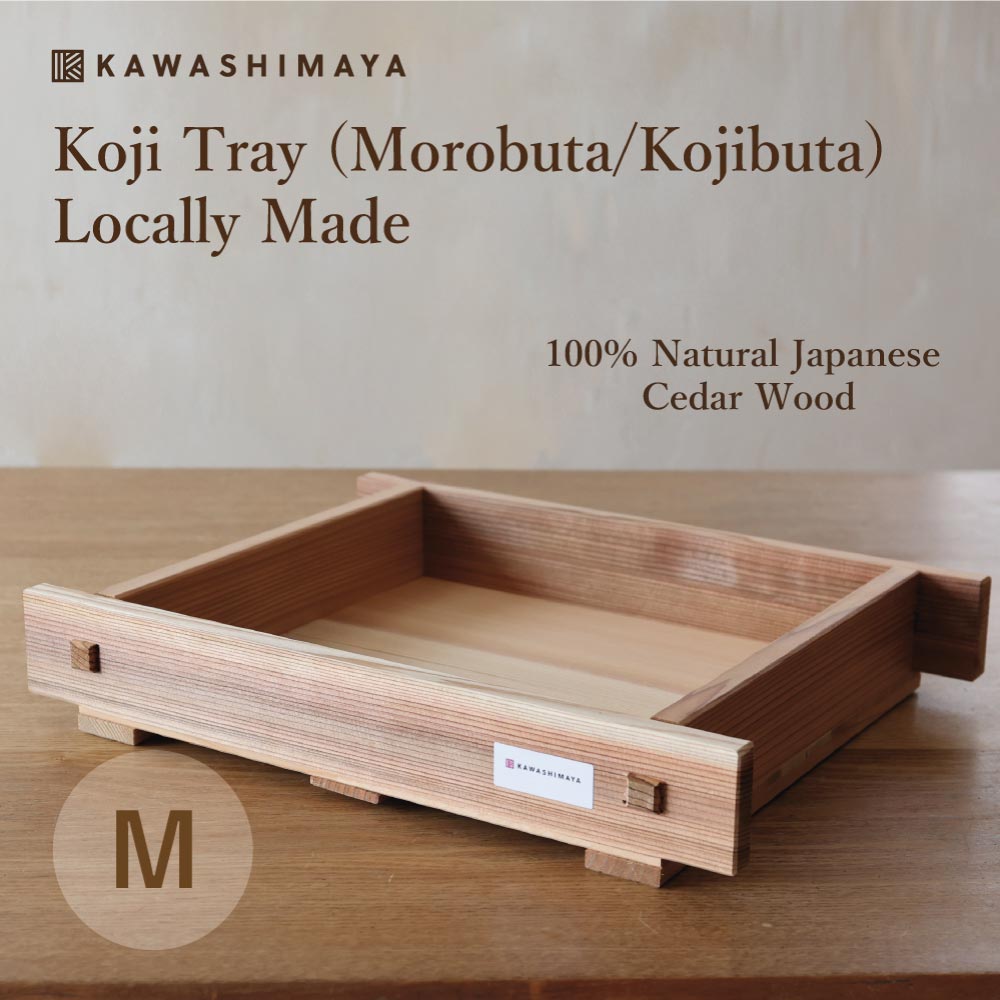
- Click here to view product
Koji tray medium size is a professional-style container that is ideal for making koji at home. Called kojibuta or morobuta in Japanese, the koji tray is the proper tool to make koji.
This product itself is limited in the market. Crafted with local natural Japanese cedarwood, this product is constructed by hand, one part after another by skillful craftsmen.
Measurement: 40cm x 31cm x Height 7cm
3pcs Set Cotton Cloth 40 x 90cm - 100% Japanese Cotton
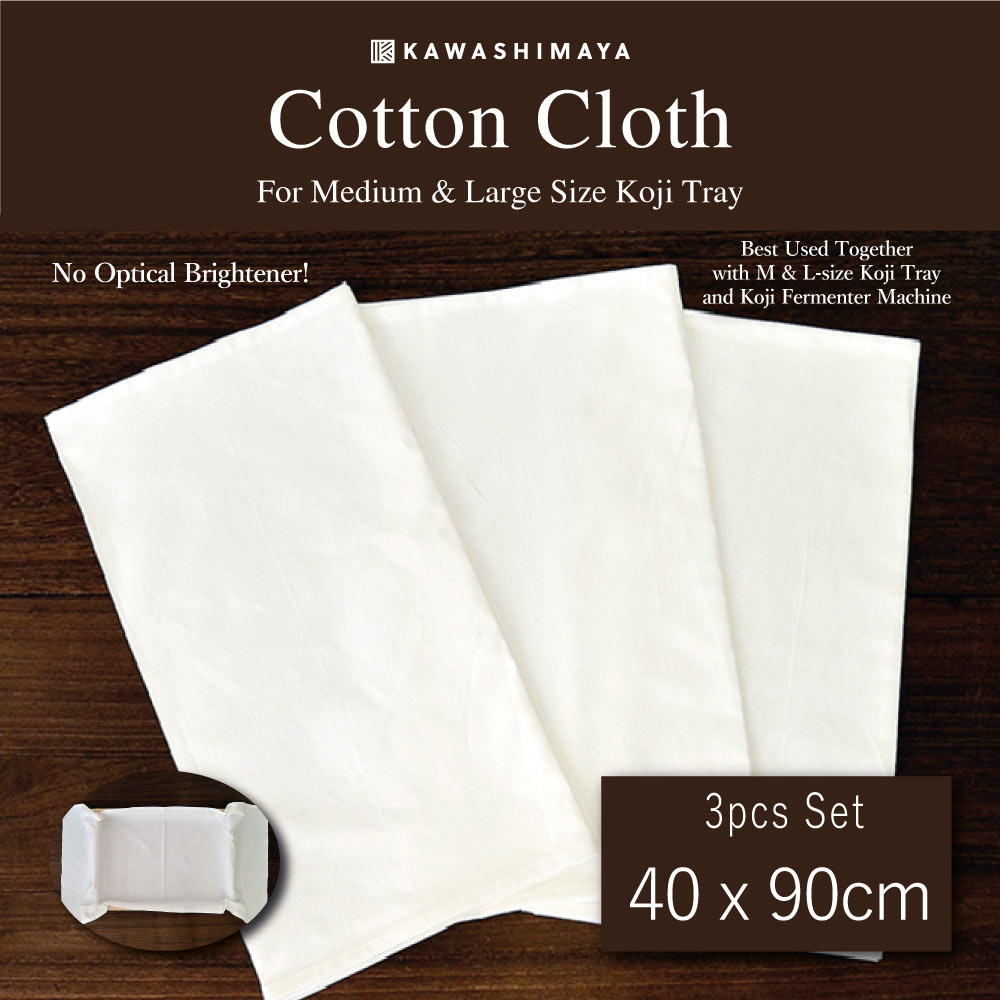
- Click here to view product
This cotton cloth is manufactured by Yoshida Textile, a specialty store for food and textile located in Tsubame City, Niigata Prefecture, that was established in 1936. You can use this 100% local Japanese cotton cotton to make koji.
Measurement: (40 × 90 cm) 3pcs
Customer's Voice
I received it and made rice koji immediately.
very good koji has finally been made. It's easy to clean up after washing, and it dries fast if you parch it in the sun.
It's a little expensive, but when I try to use it, it's a very satisfying product indeed. (Female, 40s)
A friendly fiber to both people and the environment.
I used to use just a bleached cloth to wrestle with the sticking rice, but since I changed to a fabric made of Polypropylene, I don't have to do that anymore, and it's quite useful. The fact that Polypropylene itself is a friendly fiber to both people and the environment was also a decisive factor in purchasing it.
(Female, 40s)
A mattress that doesn't stick.
I've been making koji for many years, but the work of removing steamed rice from bleaching takes a lot of effort. Mysteriously, this mattress doesn't stick, and it's such a benefit for me. (Female, 40s)
| Product Details | |
|---|---|
| Size | 70cm x 70cm |
| Material | Polypropylene 100% |
| Country of Origin | Japan |
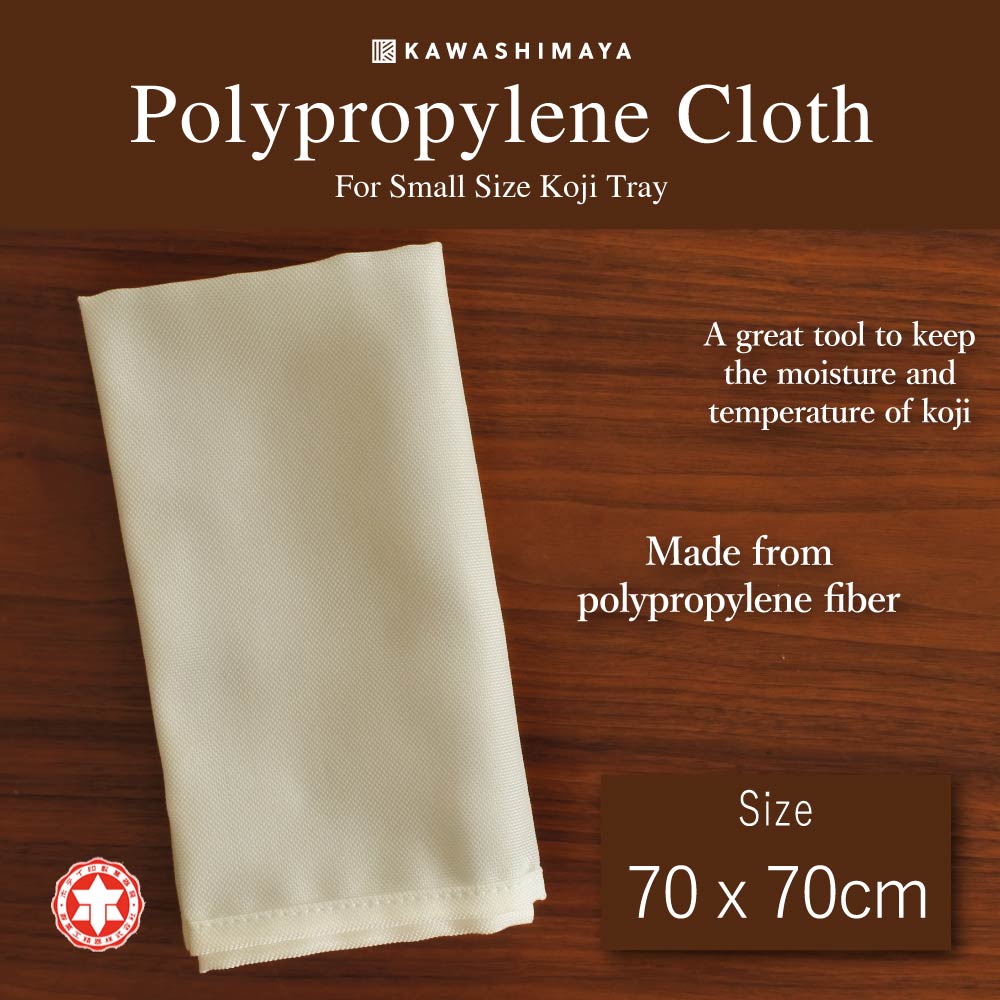
Why shop with KAWASHIMAYA?
- We sell only authentic and high-quality products
- 100% Made in Japan products are as listed
- Organic and non-GMO products are as listed
- All products are new and have long expiry date
- All products are handled directly from our warehouse in Tokyo, Japan
- Easy and secure payment options with CC or PayPal
- Safe and insured international shipping methods
- English and Japanese customer support by email
- Wholesale discount prices available for selected products
- Find insightful articles from KAWASHIMAYA Blog
- Get exclusive discounts for KAWASHIMAYA Newsletter subscribers
- Easy shop on KAWASHIMAYA Amazon USA

